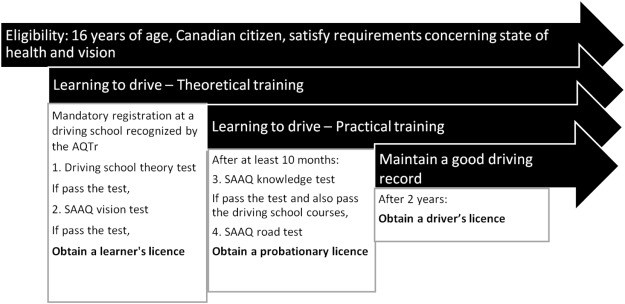This book chapter advances SDG 3 and 10 by describing and discussing (1) the existing evidence examining associations between mental health and technology use including depression, anxiety, body dissatisfaction, attention-deficit disorders (and risks of distraction), and addictive behaviors and (2) the impacts of risky online communities on adolescents’ mental health, focusing on networks promoting proeating disorder behaviors and prosuicidality.
Introduction: Driving is an important activity for the social participation of young people with physical and cognitive disabilities. Learning to drive, however, presents difficulties for this population. Innovative services have been developed in the province of Québec, Canada, but the extent to which they are evidence-based is not known nor are optimal parameters for learning to drive.
Background: Sexual harassment of women in academic medicine may impede advancement and productivity. This study analyzes the longitudinal effects of sexual harassment on academic advancement and productivity among women. Methods: We undertook a longitudinal analysis to predict effects of sexual harassment reported in 1995 on career outcomes measured in 2012–13, among a sample of women in academic medicine (N = 1273) recruited from 24 U.S. medical schools.
Introduction: People with intellectual and developmental disabilities (IDD) including Autism Spectrum Disorders (ASD) often face serious transportation challenges that impede healthcare access, community participation, and employment opportunities. Travel training, which makes use of one-on-one instruction, may help people with IDD overcome transportation barriers. The purpose of this study was to examine the impact of a comprehensive travel training program on the travel skills of individuals with IDD.
Soil organic carbon (SOC) in croplands is a key property of soil quality for ensuring food security and agricultural sustainability, and also plays a central role in the global carbon (C) budget. When managed sustainably, soils may play a critical role in mitigating climate change by sequestering C and decreasing greenhouse gas emissions into the atmosphere. However, the magnitude and spatio-temporal patterns of global cropland SOC are far from well constrained due to high land surface heterogeneity, complicated mechanisms, and multiple influencing factors.
Elsevier,
An Introduction to Interdisciplinary Toxicology, From Molecules to Man, 2020, Pages 353-361
The water crisis in Flint, Michigan, a human made disaster of dire proportions, resulted in bacterial and lead contamination of predominantly African American and low-income residents. SDG 6 promotes to ensure availability and sustainable management of water and sanitation for all.
Now that the New Year’s confetti has been cleared away, it’s time for employers to consider making resolutions to improve their workplaces. Here are 10 resolutions employers should consider making for 2020, which in turn will help advance SDG 3 (good health and well being), SDG 8 (decent work and economic growth) and SDG 10 (reduced inequalities).
Elsevier,
Diagnosis and Management in Dementia: The Neuroscience of Dementia, Volume 1, Volume , 1 January 2020
This book chapter advances SDG #3 and #10 by outlining how both the asymptomatic and symptomatic predementia phases of AD, amyloid positivity using amyloid PET imaging could predict progression to AD dementia. Amyloid PET imaging can identify the status of Aβ deposition in the underlying AD pathophysiology, increase diagnostic certainty, and alter management. This approach could improve the diagnose and management for patients with memory loss or cognitive dysfunction.
Elsevier,
Diagnosis and Management in Dementia: The Neuroscience of Dementia, Volume 1, Volume , 1 January 2020
This book chapter advances SDG #3 and #10 by focusing on providing a brief overview of genes associated with sporadic (late-onset) Alzheimer's disease (AD).
This book chapter advances SDG #3 and #10 by reviewing background on neurocognitive disorders, approaches to diagnosis, and management of several of the more problematic psychiatric complications of dementia. Disorders reviewed include AD, vascular dementia, Lewy body disease, and frontotemporal dementia. Psychiatric symptoms reviewed include apathy, agitation, psychosis, depression, and anxiety.


